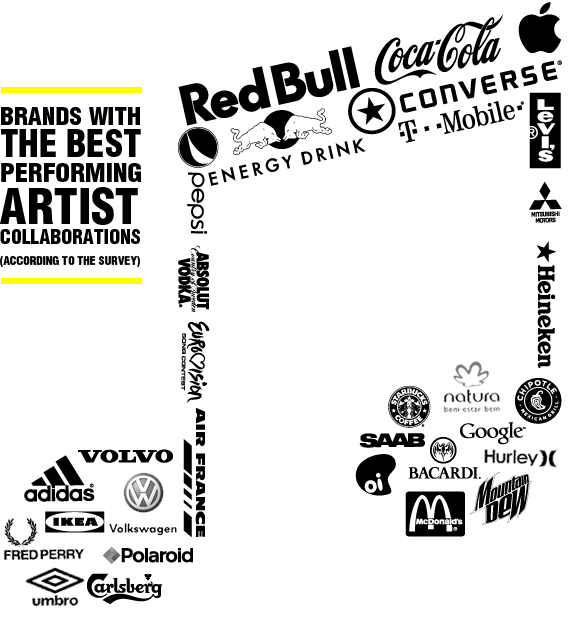Brands - the gateway to discovering new music
We know that music means a lot to people. Recently the report ‘Uncovering a musical myth’ let us know that people rank music as more difficult to live without than sports, movies and newspapers. Thanks to a recent Heartbeats Creative Council member survey, we now also know that people listen to music at least once a day. Further, that more than 9 out of 10 respondents search the web for new music and artists every month and that 92.4% are positive towards brands collaborating with artists.
The results show that 32% of the respondents listen to music 4-8 hours per day, 7.5% for more than 8 hours and just as many for almost all the time they’re awake. 20.7% listen to music between 2-4 hours per day. Only 5.6% listen to music for less than an hour, and unsurprisingly, no-one says they do not listen to music.
HOW MANY HOURS DO YOU LISTEN TO MUSIC PER DAY?

We also wanted to know more about the respondents online habits in regards to looking for new music, and asked them about it. The survey results show that as many as 96.3% are actively looking for new music and artists online each and every month. 32% say they spend more than 10 hours a month and as many as 18.8% say they spend at least an hour a day online, searching for new music and artist on the web.
HOW MUCH TIME DO YOU SPEND SEARCHING FOR NEW MUSIC AND ARTISTS ONLINE?

81.1% further say they have discovered new music and artists through a brand (through a campaign or TV-commercial or through a music site provided or sponsored by a brand such as Electronic Beats, Converse Music and Noisey.com).
MORE THAN 8 OUT OF 10 DISCOVER NEW MUSIC AND ARTISTS THROUGH BRANDS

What about people’s approach to brands collaborating with artists then? Well, we asked the respondents about their opinion on this matter and the results show us that the vast majority are positive. As many as 83% say they are “really positive, as long as the brand and the artist match”. Almost 10% went as far as to say “it’s a must if the music scene is going to survive”. Only 7.5% say they think it would be better without brands supporting artists. No one agreed with the statement that they wouldn’t listen to artists connected to a brand. Music truly means a lot, and the attitude towards brands supporting, promoting and exploring new artists and music is almost all good.
MORE THAN 9 OUT OF 10 ARE POSITIVE TOWARDS BRAND AND ARTIST COLLABORATIONS

Besides getting to know people’s listening and searching habits in regards to music, as well as their opinion of brand and artist collaborations, we wanted them to let us know which global brands they think perform the best in regards to the artist collaborations (in any kind of way, i.e. using artists in campaigns, sponsoring them, etc.). We also wanted the respondents to tell us why they picked the brands they did.
Red Bull clearly got first prize due to its Red Bull Music Academy. To quote one respondent, “Red bull with its academy is the best example ever, it’s really involved in discovering new talent but also in pointing out the experience of old school artists, and it’s global.” The first runner up is Coca-Cola, mostly due to the beverage brand’s collaboration with K’naan, and Converse. Close behind was Apple, Pepsi, Adidas, Levi’s and T-Mobile.

The tag cloud is to scale and shows you which global brands the respondents think perform best in regards to artist collaborations.
About the survey: The respondents in this survey are members of Heartbeats’ ambassador program, Heartbeats Creative Council. The members come from all over the world and are aged between 22-70. Many of them are of course interested in music, and some even work with it, but many work in a variety of other fields such as medicine and healthcare, design and marketing.

Three of the respondents were in the running to win the book Sounds Like Branding, recently internationally released. The lucky winners are Jimmy O’Mahony, Jonathon Singleton and Rodrigo Chamis.
Note: The results do not sum up to 100% due to rounding, and some questions have been asked as multiple-choice.




